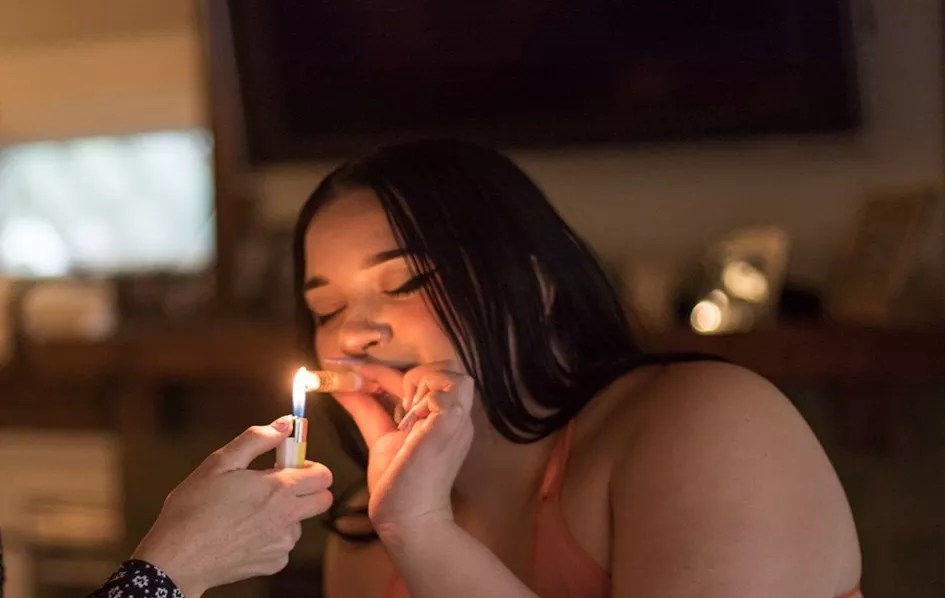
Jacqueline Collins

Audio By Carbonatix
In a surprise move, Aurora City Council rebuffed a proposed ordinance to allow marijuana hospitality businesses after Mayor Mike Coffman’s “no” vote split the count at 5-5 on September 13.
Because the second and final vote ended in a tie, the ordinance is set for another round at the next official council meeting, scheduled for September 27. If that vote again ends in a deadlock, the proposed hospitality program will have to stay on the shelf for at least six months before receiving another hearing.
While most observers thought the measure had the votes to pass, Councilwoman Marsha Berzins, who’d voted in favor of advancing the ordinance to a final hearing at a previous meeting, wound up voting no on the proposal. Berzins didn’t elaborate on her vote during the meeting, and she also hasn’t responded to a request for comment yet – but in the past, she has opposed loosening local marijuana regulations.
The empty seat on council reserved for Aurora’s second ward could also hurt hospitality chances. The seat was vacated in June by Nicole Johnston, a past proponent of legal marijuana businesses in Aurora, after Johnston announced she was moving to Colorado Springs. That seat will remain vacant until the November election.
Under the pot hospitality proposal, part of a state-approved program, businesses such as restaurants, cafes and yoga studios could apply for a micro-sales license to sell limited amounts of products for patrons to consume on the premises, similar to the way they do alcohol at a bar – although state law bans marijuana hospitality businesses from holding an active liquor license. All 24 of Aurora’s current dispensaries were eligible to apply for marijuana tasting rooms, and marijuana mobile lounges with approved ventilation and a partitioned driver, similar to a party-bus setup, would have been allowed, also. Half of all marijuana hospitality licenses would be reserved for social equity applicants for the first five years.
As she had before the first vote, Councilwoman Angela Lawson said that she couldn’t support the lack of a cap on mobile lounges and worried that the city didn’t have enough regulatory resources for marijuana hospitality, which pushed her to again vote no.
“If we’re going to build all of this marijuana infrastructure in our city, we definitely need to have the resources,” Lawson said, adding that she’d like to see more than one person assigned to local marijuana industry enforcement in Aurora. “I have a real issue more so with the mobile [lounge licensing]. We don’t have a cap on that.”
Councilman Juan Marcano suggested that the proposed marijuana hospitality program could be tweaked to address other members’ concerns, but when he asked for a discussion about mobile marijuana lounges after the ordinance was rejected, his colleagues remained silent.
Before that, councilmembers had mentioned other issues, ranging from health effects to impaired driving. “I’m still concerned that we’re in the learning phase on marijuana, because it’s not the same as alcohol, because we have rock-solid legal guidance on alcohol and we don’t have that on marijuana,” Councilman Dave Gruber noted.
If the bill had passed on the second vote, Aurora would have joined Adams County, Black Hawk, Central City, Colorado Springs, Dillon, Denver and Glendale as municipalities allowing marijuana hospitality. Only Colorado Springs and Denver have lounges that are currently operating, however, with one in each city.
Update: This story was updated on September 15 to reflect the Aurora City Council’s correct meeting schedule.